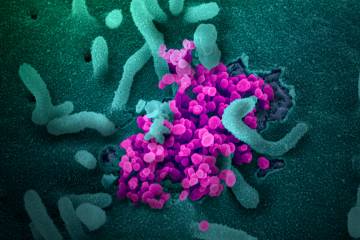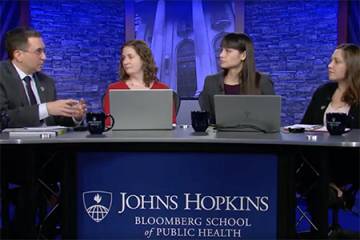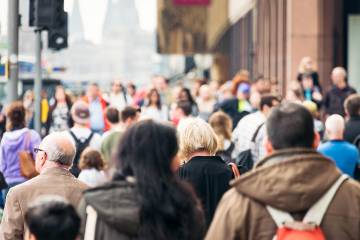Johns Hopkins expert Joshua Sharfstein took time Monday morning to participate in a Reddit AMA—the online news aggregator's popular "Ask Me Anything" format for interviews—for a conversation about the coronavirus outbreak with Marilynn Marchione, chief medical writer for the Associated Press..
Sharfstein, vice dean of public health practice and community engagement for the Bloomberg School of Public Health, directs the Bloomberg American Health Initiative and is the author of The Public Health Crisis Survival Guide: Leadership and Management in Trying Times. He previously served as secretary of the Maryland Department of Health and Mental Hygiene, the principal deputy commissioner of the U.S. Food and Drug Administration, and as commissioner of health for Baltimore City.
The Hub assembled some of the takeaways from Sharfstein's AMA, lightly edited for clarity. See what he had to say.
Other than social distancing and good hygiene, what else can the average person do to help their families stay safe during this outbreak of coronavirus?
Help out the people in your life who are at very high risk of serious consequences from coronavirus infection. That may mean getting them groceries, or convincing them how important it is to stay home. Also help others in your area understand the importance of social distancing. More about social distancing
Would a national shutdown in the U.S. be effective?
We're going to see what happens in Italy and Spain and France. Most likely, it will slow the spread of the virus. Right now, [in the U.S.] we're seeing local and state shutdowns of various degrees. In general, we need to educate and inform and inspire efforts at social distancing. Where people are not following guidance (such as by going to bars), the power of the state may be needed—but always with good explanation and constant revisiting of whether it's needed.
Does water temperature matter when washing hands with soap and water?
There are different perspectives on whether hotter water is better. CDC recommends warm or cold water. The bottom line is wash hands with soap for at least 20 seconds at key points and even if you just feel like it.
What's the most positive news you've received over the last 24 hours?
My parents have decided to cancel a trip to Tennessee. Everyone should be looking for positive news in helping people most at risk to stay safe. More broadly, I appreciate how quickly so many states and localities are taking serious action, how the health care system is mobilizing, and how the conversation has shifted to #flattenthecurve. This is what needs to happen so the U.S. doesn't experiences the challenges of Italy.
What do you make of the U.K. government's response to the pandemic?
The U.K. is less aggressive at using social distancing than other European countries. There is a lot of concern that this will lead to a peak of infections that overwhelms the health care system. We'll see soon what happens.
Why is the fact that people under 65 are susceptible to severe symptoms not being broadcast more in order to encourage social distancing in younger people?
Marchione: We've stressed in our coverage that the risk of death rises with age and is greatest for the elderly and those with other health problems. Recently a couple countries have said a large proportion of ICU cases are in people under 65, and I'll be looking to include that info as it emerges.
Sharfstein: Also, every young person is a bridge to an infection by someone at very high risk for serious illness or death. It could be their parent or grandparent or neighbor. Every single person needs to do their part to protect the community.
Posted in Health, Voices+Opinion
Tagged public health, joshua sharfstein, coronavirus










